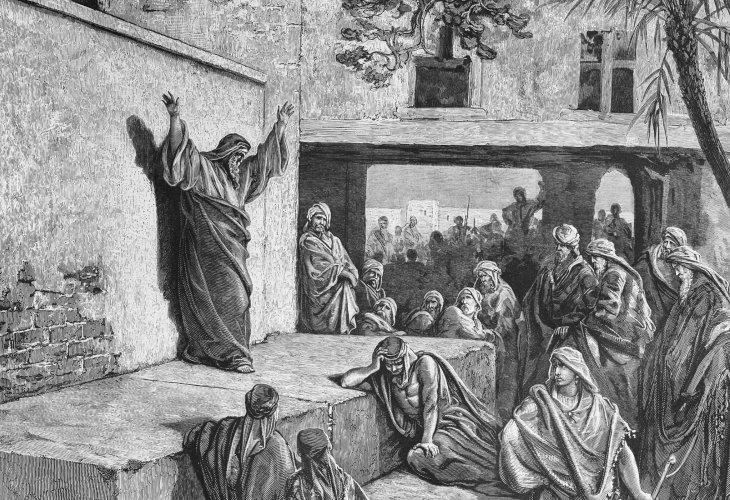Torah Personalities
Michah and the Idol: The Troubling Legacy of a Forgotten Biblical Figure
How one man and his descendants sparked idol worship in Israel long before Yeravam
 (Photo: shutterstock)
(Photo: shutterstock)Saved by Moshe, Doomed by Pride
According to Midrashic tradition, Michah was a baby during the brutal Egyptian enslavement of the Israelites. The Egyptians, seeking to kill him, cast him into the very construction site where the Israelites were forced to labor. When Moshe later went out to “see their suffering,” he encountered the child and wanted to save him. Hashem said, “I do not act without reason, but if you desire to save him, it is in your hands.” Moved by mercy, Moshe rescued Michah.
But as Michah grew older, he turned to idolatry. Even as Hashem revealed Himself to Israel in Egypt, even as the sea split before them, Michah, in his arrogance, refused to leave with the rest. Only afterward did he regret his decision. The sea split once again, allowing him to cross and join his people.
From Thief to Idol-Maker
After entering the Land of Israel, Michah lived in the hill country of Ephraim with his mother. One day, he stole 1,100 silver shekels from her. When he heard her curse the thief, he panicked and returned the money. But his mother declared that she had already consecrated the money, only not to the Mishkan (Tabernacle) in Shiloh, but rather to create an idol and molten image.
Together, Michah and his mother used the silver to make the idol and molten image, along with an ephod and terafim—a full set of idolatrous instruments. Michah placed the idol in his house, and people came to worship there freely. As the Book of Shoftim notes: “In those days there was no king in Israel; everyone did what was right in his own eyes” (Shoftim 17:6).
The Kohen from the House of Moshe
Seeking someone to serve as kohen (priest) in his idolatrous shrine, Michah encountered Yehonatan, the son of Gershom and grandson of Moshe. Yehonatan had been wandering the land looking for work, and Michah offered him a position as kohen. Yehonatan accepted and thus became the spiritual leader of Michah’s pagan worship.
Later, members of the tribe of Dan passed through Michah’s home on their way northward. They stole his idol, his sacred objects, and even his kohen Yehonatan. When Michah confronted them, they threatened him, and he returned home empty-handed. From then on, the idol remained in the territory of Dan in northern Israel.
Eventually, Yeravam built his own temple in Dan, complete with golden calves, continuing the idolatrous tradition. Yet long before Yeravam, it was Michah and his kohen Yehonatan, the grandson of Moshe, who laid the groundwork for this spiritual betrayal.
A Name, a Lineage, and a Lasting Influence
Originally, Michah’s full name was Michayahu, a name that includes the name of Hashem. But once he created the idol, that Divine suffix was removed. He was called simply Michah, a name associated with poverty or diminishment (Malbim).
Some Midrashic sources go even further, identifying Michah with Nevat, the father of Yeravam. In a spiritual sense, this connection is clear: Michah was Yeravam’s mentor and the first to establish private idol worship in Israel.
Opinions differ as to when this story took place. Rashi holds that the incident occurred at the beginning of the period of the Shoftim. Ba’al HaTurim even specifies the year as 2158 in the Hebrew calendar. Others, such as Radak and Abarbanel, believe it happened toward the end of that era. One Midrash even suggests that Michah’s mother was Delilah, the woman who betrayed Shimshon.

